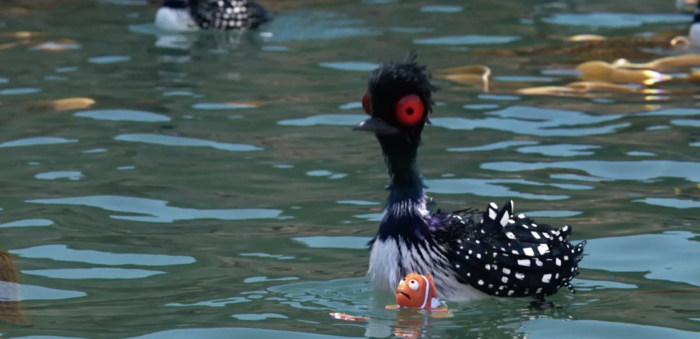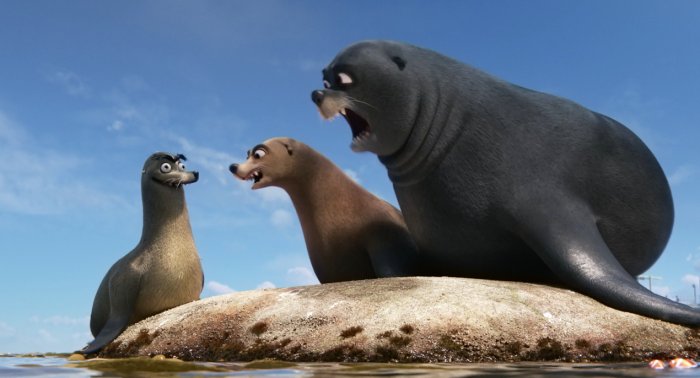The One Thing That Bothered Me About 'Finding Dory'
Finding Dory is out in theaters this weekend, and it looks on track to break the record for largest opening weekend ever for an animated film. The film currently sits with a 95% rating on Rotten Tomatoes and /Film's Peter Sciretta has called it "more emotional and funny than its predecessor."
I enjoyed Finding Dory, though I certainly didn't find it a better film than its predecessor. It borrows story beats liberally from the first film (as well as other Pixar films), but what it lacks in originality it tries to make up for in heart. It mostly succeeds, but there is one bothersome element of the film that I just can't seem to let go of. Some spoilers for the film follow.
Finding Dory is ostensibly about celebrating differences in people, especially those who are differently abled. Dory's short-term memory loss, while maddeningly inconsistent as a character trait, informs her behavior in interesting ways. Since it largely confines her to evaluate only the immediate elements around her, it frees her to be more spontaneous and risk-taking. In a pivotal scene in the film, Marlin asks himself, "What would Dory do?" in order to get himself and Nemo out of a jam.
But there's a hierarchy of ability in Finding Dory, and it separates animals who are able to speak from those who can't. The animals who can speak have inner lives, go on adventures, have the ability to help others, possess emotional richness, and generally feel and act like full human beings. And then there are the animals who can't speak: Becky and Gerald.
Becky is a loon who is able to fly and help get Marlin and Nemo around the marine habitat facility. Her character design is meant to make her look frazzled and silly. Her freakishness drew big laughs from my audience, as I think it was intended to. Marlin continuously makes fun of how dumb she is. But Becky's arc is at least redemptive — after she is imprinted upon by Marlin and Nemo, she helps save the day at the end of the film. Thus, at least her usefulness is able to overcome any mental deficiencies she may have, even if Becky herself doesn't realize what's even going on.
Then there's Gerald the sea lion. We first encounter him when Nemo and Marlin converse with Fluke and Rudder, two sea lions who lounge on a rock nearby the ocean facility. With his lack of dialogue and his blank, wide-eyed stare, Gerald is coded to appear stupid. Whenever he seeks shelter on Fluke and Rudder's rock, they shout him down and push him back into the ocean with great enthusiasm. These scenes are played for laughs, and generated a great reaction from my screening audience.
Both of these characters feel like cheap jokes. For the kids that are in the audience, they send a pretty clear message: It's okay to laugh at people who are different, or who aren't as smart as you are. Sure, Dory is differently abled. But she doesn't fundamentally look/function different than most of the other characters in the film. Becky and Gerald, though, are fair game. For a movie that's all about how anyone can achieve anything, that's disheartening and inconsistent.
What do you think?


